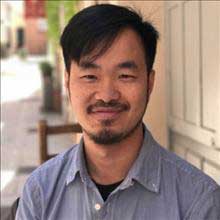
 Speaker "Leo Tam" Details Back
Speaker "Leo Tam" Details Back

-
Name
Leo Tam
-
Company
NVIDIA
-
Designation
Software Engineer
Topic
Practical Deep Learning: Use Across Industries
Abstract
Artificial intelligence and it's practical toolset of machine learning has enormous potential. A technical team working on such datasets may seek open source tools and quickly face a myriad of options. I present three recent projects and extract learnings for hardware and software tools to build and deploy models. The three projects include natural language processing for resume filtering, fully unsupervised clustering for high-content microscopy images, and retinal imaging for retinopathy screening. Respectively, they investigate novel deep learning approaches for semantic segmentation, unsupervised learning, and application specific network architectures. Software tools surveyed and used in our projects include NVIDIA DIGITS, BVLC Caffe framework, NYU’s Torch7 framework, and Google’s Tensorflow implementation. The lessons gleaned from these case studies help scope the dataset requirements, engineering economy, and application feasibility. Emerging from the case studies are a series of recommendations that may constitute best practices for industrial deep learning applied to disparate data sources and applications.
Profile
Leo Tam serves as a Senior Solutions Architect and Deep Learning Community Manager, part of the NALA-based, World Wide Field Organization (WWFO). He focusses on curating open source tools, advising and architecting solutions for enterprise applications, and contributing to the Deep Learning Institute, which his team established. Leo Tam brings to NVIDIA 10 years of R&D experience, previously as a research scientist at Stanford’s School of Medicine. He is a top performer in algorithm's competitions including an algorithm placed in the top 3% of a world-wide competition sponsored by the California Healthcare Foundation and second place in a commodities trading competition. Leo holds multiple patents for MRI machine learning and encoding methods developed as a research scientist at the Yale University School of Medicine. Leo earned his BSc in Mathematics-Physics from Brown University and PhD from Yale University.